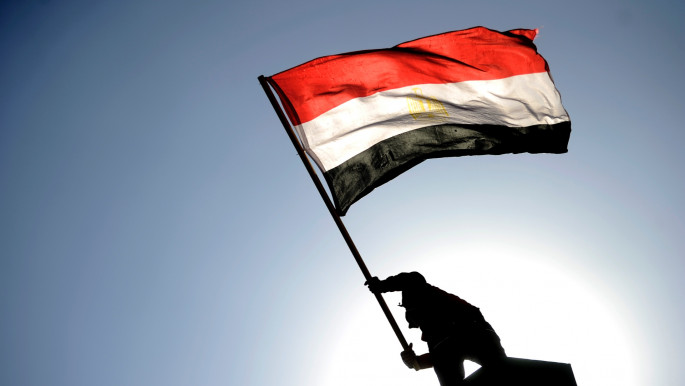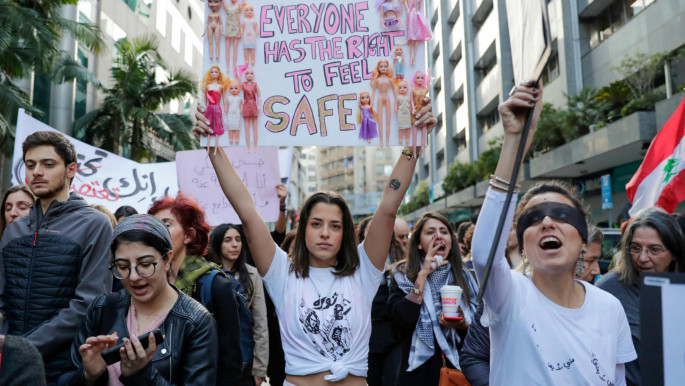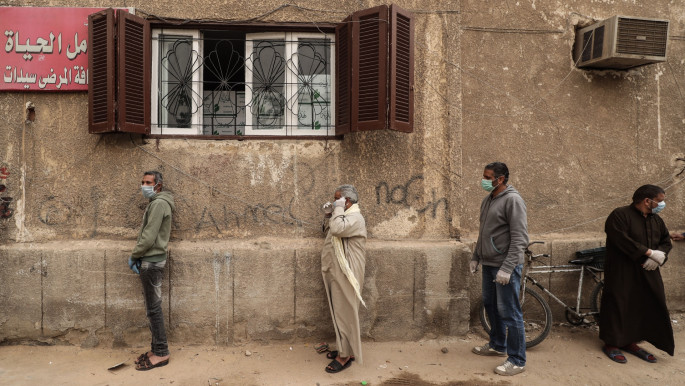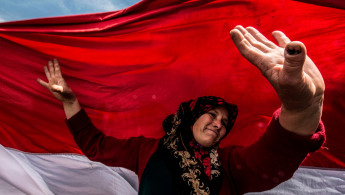'Educate, partner up!' Could Egypt's growing sexual harassment problem usher in a digital #MeToo?
A 22-year-old Egyptian student has been accused of a host of sexual crimes, including the rape of over 50 women, in an explosive case that has set Egyptian social media on fire and shed fresh light on the country's sexual assault problem, with some calling the case a #MeToo reckoning.
The student was first accused of harassing another student at the American University of Cairo in 2018, where a young woman detailed the incident, according to Egyptian Streets, an English language news website.
She wrote a detailed post about the incident on the RATE AUC PROFESSORS Facebook group which, after going viral and getting thousands of comments, was deleted by administrators.
The deletion was seen by many as an act of censorship, and what followed was a barrage of women anonymously coming forward with details alleging sexual abuse at the hands of the same student dating back as far as 2016 under an Arabic trending hashtag that translated to "the harasser" and used his name.
The allegations against him include rape, sexual assault, and sexual harassment whilst the alleged abuser was a student at the AUC and then later at the EU Business School Barcelona. One allegation claimed that he attempted to abuse a 14-year-old girl.
 |
The explosive case has set Egyptian social media on fire and shed fresh light on the country's sexual assault problem |  |
"The person accused of harassing the girls has been arrested and will be facing the prosecution following the allegations carried on social media," a security source said.
"Those affected should submit formal reports of the harm they endured". The source did not identify the suspect.
In a later statement, Egypt's public prosecution identified the man and said an investigation was launched.
The American International School (AIS) administration, the school he attended before studying at AUC, had been aware of allegations against him in 2016, Egyptian Streets reported. "Despite investigating and verifying the claims, Egyptian Streets understands AIS chose to take no punitive action against him as he was only days from graduation".
 |
|
| Read more: Weaponised censorship: The final demise of free expression in Egypt's media |
Crucially, female students at AIS were warned of the dangers of sending photos of themselves on social media and engaging in sexual contact, in a move that blamed the victims.
In response to the recent allegations, the EU Business School Barcelona suspended the 22-year-old whilst it investigates the issue, and the American University in Cairo acknowledged the suspect had studied there but said he left the university in 2018.
Several women also came forward accusing the student of blackmailing them using fake and real nude photos he had threatened to share with family and friends, as well as threatening to out their sexual encounters in the conservative country.
They allege he attempted to manipulate them by threatening self-harm and suicide, and he used social media to message women, ask for their numbers and ask for inappropriate favours.
Fury followed
The reaction in Egypt was swift, with women using Twitter and Facebook to condemn sexual assault and shine light on its prevalence in their country.
A 2013 UN Women report revealed that 99.3 percent of Egyptian women and girls have experienced some form of sexual harassment. In 2017, a Thomson Reuters Foundation poll named Cairo as the most dangerous megacity for women, citing verbal and physical harassment as some of these dangers.
 |
The reaction in Egypt was swift, with women using Twitter and Facebook to condemn sexual assault and shine light on its prevalence in their country |  |
Egypt's National Council for Women (NCW) lodged an official complaint with the public prosecutor to investigate the allegations on Saturday.
"The NCW has followed the social media account on Instagram, which was launched by girls and women complaining that a man raped some of them and sexually assaulted and harassed others," it said on Facebook.
It also said that several victims, who reached out to the council, recounted that the man "blackmailed and threatened to defame them using photos and clips documenting his heinous crimes". The council urged the women to submit official complaints to the prosecutor.
However, whilst Tarana Burke's burgeoning #MeToo movement in the US kicked off in 2017 and led to the arrest of a host of abusers, including disgraced Hollywood film producer Harvey Weinstein amid a widespread movement, it fell short in Egypt.
 |
|
| Why women activists are taking gender-based violence into their own hands |
Despite many women joining in with the movement in 2018, Egypt's repressive government remains a bulwark against change. In July 2018, Egypt's parliament passed a law granting the government sweeping powers to regulate social and traditional media, permitting President Abdel Fattah al-Sisi's security clampdown on free speech and dissent to deepen.
A month later the government gave human rights activist Amal Fathy a two-year sentence for posting a 12-minute Facebook video detailing allegations of sexual harassment at a bank.
The watchdog group Amnesty International blasted the verdict as an "outrageous case of injustice," adding that Fathy's case "highlighted the vital issue of women's safety in Egypt."
Hope for #MeToo?
There are those that argue the tides are changing in Egypt. A burgeoning student-led movement appears to be erupting on the social media sphere.
Young men and women are taking to social media to call out sexual abuse, and organisations are popping up offering support to those who have been sexually abused.
 |
A burgeoning student-led movement appears to be erupting on the social media sphere |  |
Eed Wahda is a social support platform for women suffering from violence and sexual assault. Its founder, community activist Molk Said, believes that whilst Egypt has work to do, there have been some changes.
"I believe that due to social and cultural stigma women and girls were taught never to speak up and to keep matters, especially sexual ones to themselves," she told The New Arab.
"Violence against women and girls in all its forms has been a matter that was very often overlooked." Speaking of the ongoing case, she added: "The case did indicate that there are survivors willing to speak up.
 |
|
| Read more: Death or jail: Egypt's medics battle Covid-19 and state persecution |
"However, I believe that in order for a real 'me too' movement to happen we need to enable these survivors with a platform that is their safe-zone and provide them with services they wouldn't have access to such as; legal aid, therapy and most importantly the access to one another!
"Another important factor is to welcome men and boys to be a part of this movement instead of pushing them back. We need to educate and partner up in order for a real social movement to happen."
Eed Wahda, Molk believes, could be a bridge for women afraid to come forward. "Eed Wahda is the first online social support platform uniting all women and girls on all forms of violence," she said.
"I wanted to create something from a grassroots level and most importantly sustainable, with no end date or capacity limitations.
"The gap between what actually happens and what we hear is immense and sometimes it's even shocking as to how little we know. Violence is one matter that we can all relate to and where human-made dualities/categorisations are invaluable! Hence, the name 'Eed Wahda.'
"I want to build a community based on kindness, for women and girls to unite, to share their survivor stories, to build each other up, to feel like they belong and most importantly in their safe zone."
Narjas Zatat is a staff journalist at The New Arab.
Follow her on Twitter: @Narjas_Zatat


![President Pezeshkian has denounced Israel's attacks on Lebanon [Getty]](/sites/default/files/styles/image_684x385/public/2173482924.jpeg?h=a5f2f23a&itok=q3evVtko)



 Follow the Middle East's top stories in English at The New Arab on Google News
Follow the Middle East's top stories in English at The New Arab on Google News


